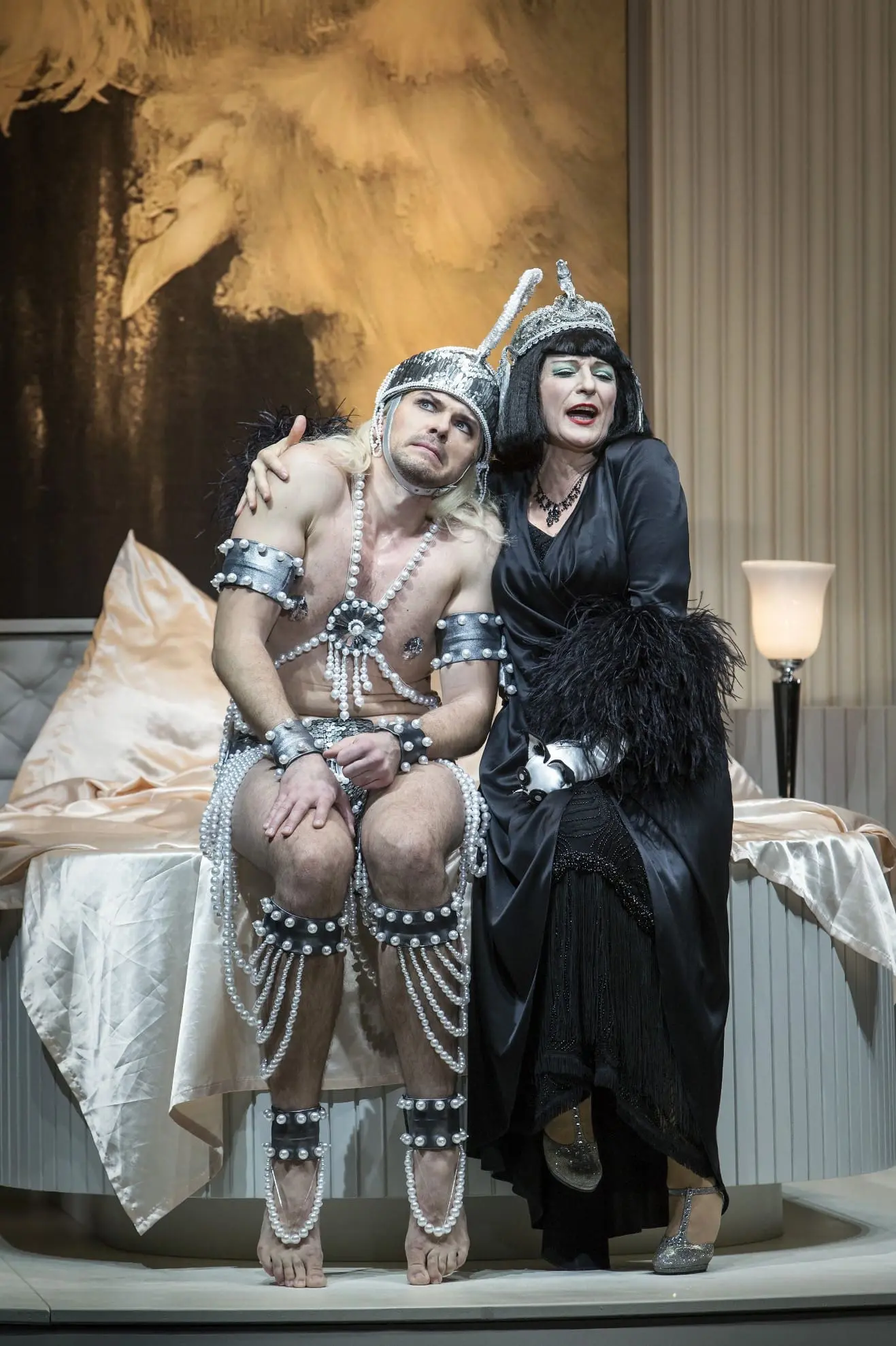Enjoy a snippet from writer Catherine Kustanczy’s feature in our upcoming issue exploring ‘light opera’ and where things stand at home for the unjustly maligned genre:
Operetta has enjoyed a resurgence of sorts at various European companies, particularly at Komische Oper Berlin, where, under Barrie Kosky’s leadership, it’s found a whole new, enthusiastic audience. The company has produced a string of successful hits by Berlin-based composers whose works were originally banned by the Third Reich for their Jewish authorship. Titles by Paul Abraham, Oscar Straus, and Emmerich Kálmán have proven extremely popular with audiences, and Kosky has presented them in bold, colourful ways that pay respect to their origins while broadening their contemporary appeal. Yet the question of producing operetta, with its itinerant issues of relevance and attraction for modern audiences, is one that bears scrutiny, particularly at a time when opera companies, especially in North America, are looking to attract wider, more varied demographics.
“It’s a different kind of art,” says baritone Dominik Köninger, a KOB ensemble member who has performed with his home company both in opera (including the titular Pelléas et Mélisande, Figaro in Il barbiere di Siviglia and Papageno in Die Zauberflöte) and operettas (Agamemnon in La belle Hélène and Silvius in Die Perlen der Cleopatra). “Operetta is a different kind of music, but it has value—it’s not like it’s bad music. There are bad pieces everywhere, and not-good operas too.”
Gregory Finney, a Canadian baritone who is entering his tenth season performing with Toronto Operetta Theatre, thinks the art form’s great advantage is the opportunity it offers performers to “flex muscles that usually aren’t called for on the operatic stage. I get to dance more, be more physical, and banter about. The stamina required for these shows is incredible.”
Köninger echoes this, noting that “to be funny is much more complicated, and much harder to really perfect. If you have an operetta like La belle Hélène or The Pearls of Cleopatra, where you constantly have to switch between speaking, shouting, crying, screaming, beautifully singing, and all without wearing very much for a costume…it’s a good way to get to know your own possibilities.”
Pacific Opera Victoria General Director Timothy Vernon calls the art form “a treasure trove of wonderful melodies and great parts for singers. This attitude of, ‘Oh, it’s frippery’—no, it isn’t. Elisabeth Schwarzkopf and Nicolai Gedda and Fritz Wunderlich, the great singers of their day, sang this repertoire!”

Lucia Cesaroni (Adele) and Gregory Finney (Orlovsky) in Toronto Operetta Theatre’s Die Fledermaus. Photo: Gary Beechey
For the full story, make sure to pick up your copy of Opera Canada at select bookstores and newsstands this September, or become a subscriber to bring all the latest operatic news, reviews, profiles and more straight to your doorstep!















